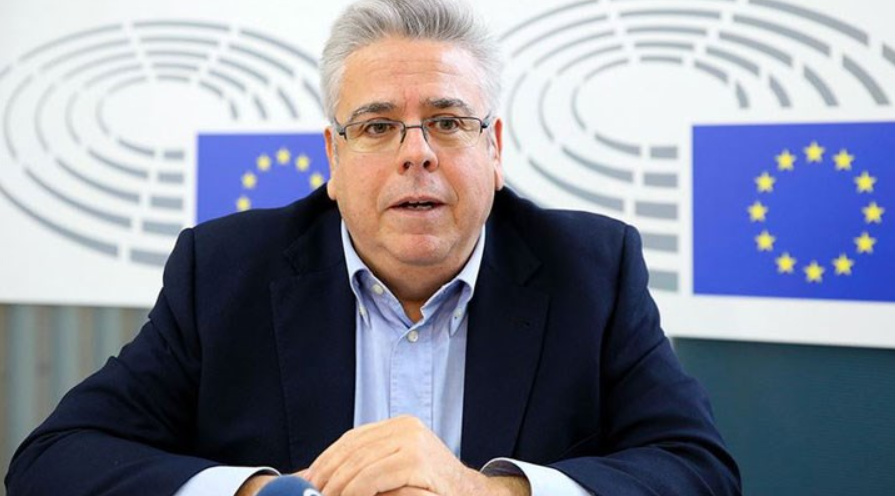Nacho Sánchez Amor, the European Parliament’s rapporteur on Turkey, sharply criticized the Turkish government for prosecuting 14-year-old girls on terrorism charges, the Stockholm Center for Freedom reported.
Speaking during the 81st EU-Turkey Joint Parliamentary Committee debate that focused on the state of Turkey’s EU accession negotiations, freedom of speech and the rule of law, Sánchez Amor condemned what he described as an erosion of democratic standards in Turkey and urged the government to align with European Union accession benchmarks.
“You are prosecuting girls of 14 years on terrorism charges,” Sánchez Amor said referring to a recent case. “And they are being asked by the judge, why did you go to study with your neighbor?”
In May 2024, Turkish authorities detained 14 high school students, aged 13 to 17, on charges of alleged links to the faith-based Gülen movement.
Turkish President Recep Tayyip Erdoğan has been targeting followers of the Gülen movement, inspired by Muslim cleric Fethullah Gülen, since corruption investigations revealed in 2013 implicated then-Prime Minister Erdoğan as well as some of his family members and his inner circle.
The indictment in the case of the young girls cited routine activities — such as attending study groups, going to the movies and using food delivery services — as evidence of terrorist involvement. The trial, known as the “High School Girls Case,” has drawn significant criticism for its treatment of minors and the broad application of anti-terrorism laws.
Human rights organizations, including the Italian Federation for Human Rights (FIDU), have expressed concerns over the treatment of these young girls and the judicial practices employed. FIDU’s report highlights violations of legal procedures and accuses the Turkish judiciary of systematic bias and lack of impartiality.
Amor added that such practices are emblematic of broader issues with the Turkish judiciary, which he argued lacks independence and operates under significant political influence.
Sánchez Amor said that Turkey’s actions in these areas are incompatible with EU membership criteria. “Chapter 23 cannot be opened because there is no progress. The report says Turkey has reached such a low level on democratic standards that it is impossible to worsen,” he said.
In the context of EU accession negotiations, “opening a chapter” refers to starting formal discussions on a specific policy area (called a “chapter”) that candidate countries must demonstrate aligns with EU standards. Chapter 23 specifically deals with the judiciary and fundamental rights.
Sánchez Amor also pointed to systematic issues in the judiciary, such as the reassignment or dismissal of judges for decisions unfavorable to the government. He accused the Turkish government of undermining local democracy by replacing elected mayors with government-appointed trustees, describing it as a “hijacking of democracy.”
The rapporteur further noted that while security cooperation between Turkey and the EU is important, it cannot substitute for genuine democratic reforms. “Membership is about democracy,” he said.
The speech came as Turkey’s EU accession talks remain stalled amid concerns over judicial independence, human rights and democratic backsliding.

